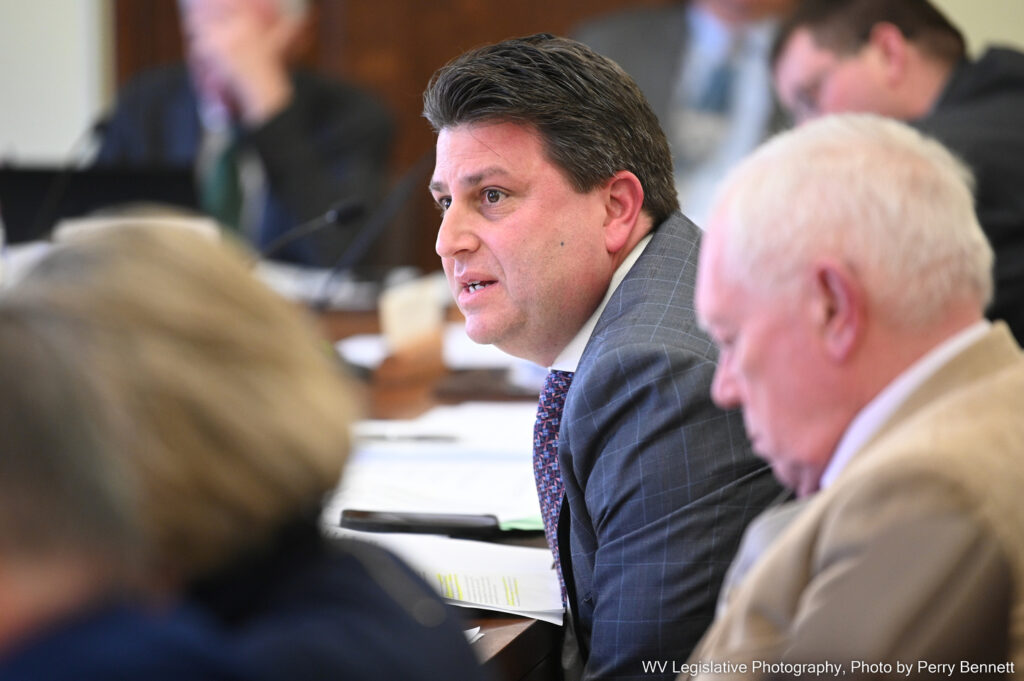With the signing of the tax cut bill, lawmakers have taken a significant step towards finalizing a budget. However there are still some coronavirus relief monies yet to be appropriated, and significant debate on how to use them.
House Bill 2883 would make a supplemental appropriation of $500 million from the Coronavirus State Fiscal Recovery Fund to the Economic Development Authority.
Community activists from almost a dozen organizations including the NAACP and the ACLU gathered Tuesday morning to call for a portion of those funds – about $300 million – to be invested into West Virginia’s poorest communities.
Rev. Matthew Watts of the Tuesday Morning Group has promoted an alternative application of remaining federal relief funds since before the start of the session. He wants to take the $300 million and allocate those dollars to cities, towns and counties based upon the proportion of people living below the poverty line.
He and others are now concerned that allocating the money to economic development doesn’t meet the intent or requirements for American Rescue Plan Act funds.
“It now appears that the legislature is going to seriously entertain the governor’s request that $500 million of the remaining $678 million in ARPA dollars go to the general economic development fund,” Watts said. “We think it’s just important to bring it back to the public’s attention that that was not the federal government’s intention when they sent the money. They made it clear in the guidelines that general economic development was not an allowable expense.”
Watts says the spirit and intent of the federal statute was to be invested strategically in underserved and long marginalized and disadvantaged communities. He believes that can still be done while also meeting the governor’s desire for large-scale business investment.
“It’s just a matter of them realizing it’s not a zero-sum game, it does not have to be either we give all the money to our state corporation for economic development, or we give some money to invest in the people in the places where they live,” Watts said. “They both can be done because with the $1.7 billion in budget surplus, with the remaining $677 million in opera dollars, there is an opportunity to do both.”
House Minority Leader Del. Doug Skaff, D-Kanawha, is the bill’s co-sponsor. As the minority leader, Skaff said his name being on the bill is largely ceremonial, and he has promoted several amendments to try and codify Watt’s proposal for community aid from the funding.
“A lot of us feel like we should not put that much money into that fund. Economic development is what we need and what we’ve done,” Skaff said. “We’ve done a lot over the last couple years, but we still have people in need. We have counties, hurting cities, and we have to take care of our people who are still coming back out of COVID. We have proposed amendment after amendment to take $300 million of that and put it in underserved areas around the state.”
Skaff believes, like Watts, that direct investment in communities is a viable form of economic development.
Senate Finance Chair Sen. Eric Tarr, R-Putnam, is not convinced that such a direct expenditure would be the best use of the funds.
“The way that we, the Senate, has been characterizing those revenues is an opportunity to save money going forward, or to improve the return, whether it be in jobs or whether it be in revenue that comes in state off those investments, for the operations of state going forward,” Tarr said. “So, to go out and grant it just on communities at large, without addressing those two issues – which those two issues I just mentioned, are nine times out of 10 job creating initiatives in West Virginia, which end up helping all these communities. I think it’s a difference in philosophy of how you do it: directly grant it to communities versus teaching men to fish so to speak, when we bring jobs into communities.”
As the legislative session draws to a close, Watts wants to see his proposal codified, but is hopeful the governor can still use the funds to help West Virginians.
What he doesn’t understand are the motivations of some legislators.
“I don’t know how the legislators from my part of the state, the southern West Virginia coalfields, that look like a third world country that’s just been devastated by war, I don’t know how they can go back to their cities, into the towns, to the villages and look the people in the eye and explain to them why they would not stand up and support our idea that some of that money came back to their counties,” he said. “I don’t know why they want to be here, if they’re not going to represent the people that sent them here. We will see what they do when it comes time for them to vote in these respective committees.”
House Bill 2883 was approved by the House Finance Committee later on Tuesday with the recommendation to the full House of Delegates that it do pass. Several amendments to the bill, including Skaff’s proposal for direct investment in communities, were voted down.




















